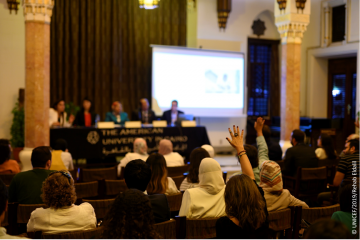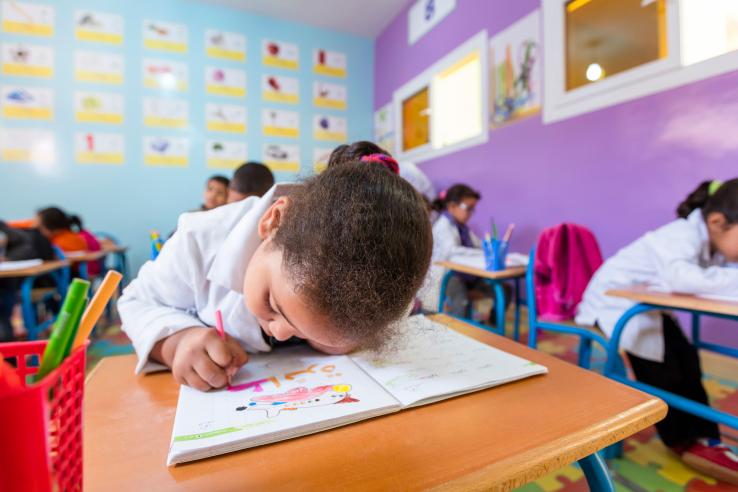
Announcing joint partnership to launch the Morocco Employment Lab

J-PAL and Evidence for Policy Design (EPoD) at Harvard are partnering with the Millennium Challenge Account (MCA) Morocco Agency to launch the Morocco Employment Lab. The Lab is part of J-PAL Middle East and North Africa's efforts to spur research, policy, and training in the region.
Hosted at the Policy Center for the New South, a Moroccan think tank, the Employment Lab seeks to create a culture of evidence-based policymaking through rigorous impact evaluations and capacity building.
This research and training work will strengthen Morocco’s existing labor market programs and improve the effectiveness of future programs and policies—particularly important to support recovery from the economic downturn spurred by the COVID-19 pandemic. As such, the Employment Lab will further the mission of the "Education and Training for Employability" project under the 2017-2022 MCA-Morocco Compact II, funded by Millennium Challenge Corporation (MCC).
Despite robust economic growth, unemployment rates in Morocco remained high before the COVID-19 pandemic, estimated at 9.2 percent in 2019. Unemployment rates are particularly high among youth at twice the rate of total population and among those holding tertiary degrees of which three quarters are unemployed. Female labor force participation is set at 23.6 percent in 2016; it is among the lowest in the world and has been decreasing over the past years.
Under the academic leadership of professors Bruno Crépon and Rema Hanna, the Employment Lab will work across four complementary components that contribute to building a culture of evidence-based policy and ensuring that labor market programs are informed by evidence:
- Identify policy priorities: The Employment Lab will work with policymakers to diagnose key policy challenges, especially those compounded by COVID-19, identify data, highlight and prioritize knowledge gaps.
- Build capacity for evidence use: The Employment Lab will host training workshops and events on how to generate and use evidence in policy making. Tailored trainings will be delivered to researchers, civil service trainees, NGOs and government officials at different levels to create a broad understanding of how evidence can be used in the policy and program design.
- Conduct impact evaluations: Together with its policy partners, the Employment Lab will co-design and implement a portfolio of impact evaluations that address the identified policy priority issues.
- Share evidence to inform policy: The Employment Lab will disseminate research results to a wide range of stakeholders through a large-scale policy symposium, policy briefs, and online communication channels.
The Employment Lab theory of change

In partnership with a wide range of public and non-governmental organizations, the Employment Lab aims to help tackle critical labor market challenges in Morocco. Rigorous research will inform evidence-based policy solution—especially pressing today as unemployment rates soar due to COVID-19.
By engaging Moroccan researchers and in collaboration with Moroccan academic institutions such as the Mohammed VI Polytechnic University and the Ecole Nationale Supérieure de l’Administration, the Employment Lab will seek to create a broad-based local capacity for evidence-based policy making.

